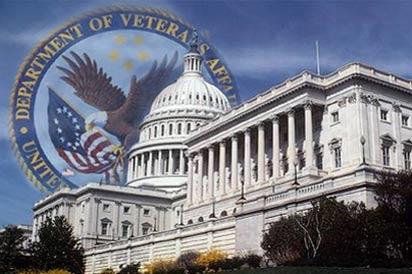Testimony by VA employees, whistleblowers, and management in front of the House Committee on Veterans Affairs today painted a picture of problems within the Veterans Benefits Administration eerily similar to last year's VA Healthcare scandal that resulted in the resignation of then VA Secretary Eric Shinseki.
During a sometimes contentious hearing in front of Congress, VA Officials were challenged by VA whistleblowers and union representatives who described a culture of mistrust, lack of training, nepotism, and bullying by managers at VA offices while the VA Inspector General's Office spoke of a "systemwide trend" of data manipulation at VA offices, motivated by a desire to inflate performance numbers.
While the VA has been transitioning from a paper based claim system to an electronic image based one, ostensibly to prevent fraud, whistleblowers from VA offices in Philadelphia and Oakland spoke of "hundreds of claims" which had their electronic tracking data manipulated to increase reported production output and decrease the reported time to work the case.
Rustyann Brown, an ex-employee of the Oakland VA Regional Office spoke of discovering over 13,000 unworked compensation claims in a file cabinet in 2012. She and other employees were assigned to work all the pending claims from the cabinet as quickly as possible. When they complained to management that corners were being cut and mistakes made, "the next thing we know, we got taken off the project", Brown said. The VA has said that the majority of the files discovered in the cabinet were copies and duplicate work that had already been processed, but when the Oakland office was being remodeled in 2014 a cart with over 500 unprocessed claims from the 2012 discovery were found, and many still needed to be processed, according to the VA Inspector General.
Joseph Malizia, president of the American Federation of Government Employees Local 940 at the Philadelphia VA Regional Office said management has "created a hostile work environment that has left employees very demoralized." He and other current VA employees described "shell games" where employees were directed to work easier cases first to increase performance numbers so managers would receive monetary bonuses, mail being hidden from inspectors to make offices appear to have less pending work, and forging the dates that Veteran's disability claims are received by the VA to make it appear the office was processing claims faster than they actually were.
Linda Halliday, VA's Assistant Inspector General for Audits and Evaluations, spoke of "retaliation against whistleblowers" at the Philadelphia VA Regional Office, a "serious mistrust of management by employees" with a "fear of reprisal" existing among employees who spoke up about problems at the office. She also said that there was evidence of a "system wide trend" of data manipulation at other VA offices, motivated by a desire to inflate performance numbers.
Philadelphia employees even spoke of attending a management sanctioned office party in 2014 where they were asked to pay a supervisor's wife who was functioning as a medium to "communicate with the spirits of their deceased loved ones."
VA central management has stated it has begun an administrative investigation into the findings of the Inspector General's report and pledges to "take immediate action to improve the operation and management at these facilities and to re-examine the effectiveness of its internal processes to ensure the accuracy and delivery of benefits and services to veterans and their families."











